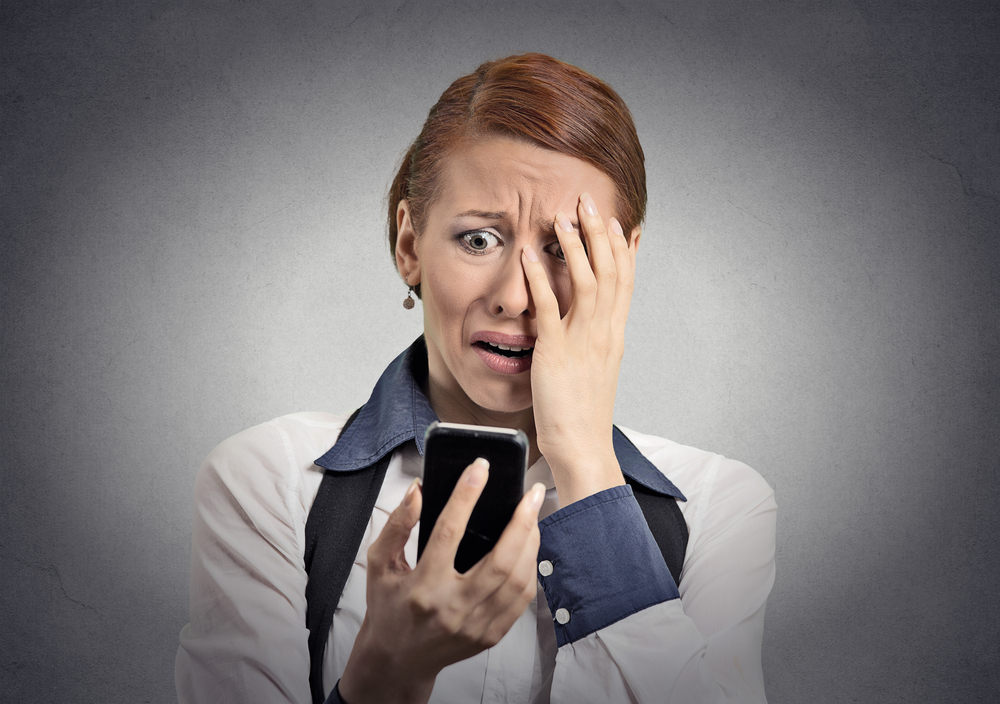
You can’t have missed the controversy in recent weeks about the travel blogger who asked for a free stay at a hotel in exchange for coverage on her YouTube channel.
Personally, I think the hotel behaved unprofessionally. Sharing a pitch from a small business without taking due care to protect their identity is careless and unnecessary. But I’m going to kick off this post by saying, it was a poor pitch.
What Bloggers Should Know About Pitching Brands
Ultimately, when a blogger pitches a collaboration to a business like a hotel, it’s sales. And you’re only going to make a sale if you can convince the business owner that doing business with you will be a positive interaction that will benefit their business. So your sales pitch should include things like:
- The person’s name. Seriously, do your research. Look up the name of the marketing director or founder or whatever. If you don’t know it, don’t pitch. Send an initial email saying, “Hey, I wonder if you could let me know who would be the right person to contact about X, please?”
- What you’re selling. For example, “I’d be interested in writing a review of the service, which would include images, a link for people to purchase, and details of any current special offers. I share all my reviews four times on Twitter and Facebook, and I would also look to post 8 Instagram Stories.”
- Explain why your potential partner should do this. You might want to show them the quality of your previous work (“Here are links to three recent reviews of companies in your industry”) or you could give them numbers (“My most recent review of X generated 700 click throughs to the brand website and 200 interactions on my social media updates”).
- Show your Audience. Just because you have an amazing audience doesn’t always make it the right audience. The Sun has 2m readers in the UK but that doesn’t mean it’s the right place to promote your new book on Vegan cookery. So explain who reads/watches your stuff and why they’d LOVE to hear about this brand. “My audience is primarily women aged 25-40 with kids, and I see that you have a Mother’s Day special coming up” or “Some of the most popular posts on my site are about family days out. My recent post on X is one of the top 10 posts on my site, attracting X readers per day over the past six months. I think my readers would be really interested in the new family package you’re offering”.
- As a related tip, check our the company you want to business with. Have they worked with bloggers before? Do they seem like they are interested and involved in social media? Are they generally approachable and friendly? Is there a specific product or campaign that matches well with your content/audience? Then you can tailor your pitch accordingly. “I see you have previously worked with X. I’d be interested in doing something similar but focusing on your kids’ menu.”
If you do all of that and someone’s still rude to you? Well, you probably have every right to be upset.
Although you should still probably suck it up.
Not everyone’s nice. Not everyone will love your business proposal. Sometimes people will use you to generate cheap PR for themselves.
It happens.
What PRs Should Know about Influencer Marketing
I used to work as a freelance journalist, and these days I work in influencer marketing. This means I’m well used to writing pitches and proposing collaborations.
And while I do think Elle Darby could have made a better pitch, she wasn’t rude. She didn’t threaten anyone. She didn’t lie about her reach, or exaggerate.
There’s no harm in pitching. It just works better when it’s a bit more considered.
Still, I have a lot of Facebook friends who are journalists, or who work in PR. I’m shocked by how aggressively critical they are about this story. How vitriolic and personal their comments are about a young person starting out in an industry. Seriously? Guys, hate the approach, don’t hate the person making it.
On my timeline I’m seeing phrases like “liar” and “little madam” and “entitled”. There’s frequent use of “so-called” influencers and talk of how influencers are misdirecting funds that could be used on REAL PR that is actually “effective” and not just reaching “fake audiences” and “bought followers”
And, oh there’s so much glee that one young woman “got what she deserved”.
Newsflash, friends: it’s not 2005.
Yes, there are lots of people on social media who exaggerate their reach and influence. Yes, there are lots of people who use their blogs to get free things they’d like, without considering whether it’s a good match for the business, OR their audience.
But you’re an actual grown-up and you should have the knowledge and skills to identify those people when they pitch you, or your clients. It’s not THAT hard.
Social media influencers don’t need to get a “real job”. Because for some of them, they already have a very successful job.
They have built an audience that is engaged and targeted, and the products they share on their social media channels are of interest to that audience.
Social Media is Influential
I have a 12-year-old daughter. Her Christmas list this year was based entirely on things she’s seen on social media. It’s the shirt she saw on Instagram, the review album she saw her favourite K-Pop YouTuber reviewing.
Flea doesn’t watch TV unless it’s streaming something and skipping all the ads. She doesn’t read magazines or newspapers. Her media consumption is entirely based around online content.
And I’m 35 (or thereabouts). Guess what? Your client didn’t win me over this Christmas because of that great magazine review you scored. Because I haven’t read a magazine in about six years.
I booked a holiday to california a few years ago on the basis of a post written by another blogger. I got an iPhone X in part because of the post a US blogger wrote on his Facebook page comparing the camera to previous models. Many of my recent home purchases are based on seeing an Instagram post and thinking, “Oooh, I WANT that.”
You can argue about the quality and the ethics and disclosures – but the truth is there’s good and bad social media. This is hardly a new idea to anyone working in PR or journalism.
I know plenty of journalists who reviewed products they’d never taken out of the box, so they could sell it on eBay as “brand new, in packaging”. Just like I know plenty of PR people who took journalists out to dinner and flew them first class here there and everywhere on their clients’ dime, in hopes of positive reviews.
I even know a few journalists who accepted payment to include brands in newspaper articles. I know a few PRs who flirted with journalists to guarantee good coverage.
Idiots happen everywhere.
Social media isn’t some elaborate con. It’s just a new(er) form of media. The barrier to entry is low, compared to other forms of media. So there’s a bigger pool of publishers, for sure.
Of course not every blog or channel or Instagram page is the right for your client. Heck, some of them might not be a good fit for anyone’s client.
But social media influences us, and our lives. Where we travel, what films we see, what products we buy. And as long as we’re influenced, there will be influencers. Nothing so-called about it.
Ultimately if you’re a PR, that’s a good thing.
It’s good that there are influencers you can work with to target my daughter through Instagram, and YouTube. Because the truth is she isn’t seeing your client’s messages on TV, or in print.
Like I said, it’s not 2005 any more.





Great post Sally. I very rarely pitch but this whole thing has put me right off. Really interesting to read your take on influencer marketing from a traditional journalism background. Also the fact that Influencer marketing reaches into your home is good to hear. Thanks for the pitching tips too, if ever I do feel brave I’ll be rereading this!
Nat.x
It’s such a mess that story with the hotel isn’t it? Nobody comes out of it well. I think the blogger would’ve had a lot more support if she hadn’t stated in her video that she’d done nothing wrong (so she still doesn’t see that lack of research was a big glaring error) and that people over 30 don’t understand social media. The video also included a few disparaging comments about people who do everyday jobs, and therefore are clearly jealous of influencers. Which just goes to show that having a rant to stick up for yourself could work, but equally could make things much worse.
I often caution new bloggers to pause a bit and build up their own networks before pitching. Generally this goes down like a steak at a vegan festival. People don’t want to hear it. They want to hear ‘You go hun!’ and ‘Everybody’s got to start somewhere!’. It’s as if somewhere along the line the message has been lost that in order to be an influencer, you have to build up a bit of influence in the first place.
Sally, as ever an erudite post. As a PR – well exish PR one mainly does management consultancy at the moment daahhling, I find this story most distasteful for a bunch of reasons. I won’t blather on about most of them – actually you’ve covered them, but here’s my two main concerns with all of this.
No matter which side of the fence we sit on PR, blogger, social influencer even journo, ultimately we are all in the engagement game. For whatever our reasons, we are trying to engage an audience in a story, trying to build up relationships for a purpose – be that to educate, sell product, encourage behaviour change, whatever. We may have different ways of doing this but none of us are ‘better’ than others, surely we’d all get much further, quicker if we all realise we are part of an extended and in today’s world, virtual team. That’s not to say people don’t get along, can’t have opposing views or don’t make mistakes – all of those things happen,, we can’t avoid it but we can manage our relationships with each other in a different fashion, even in the face of these negatives. It’s really not difficult.
This brings me on to my second point, professionalism. That’s what really lies at the heart of this. I am not aware of her training background, but if the blogger concerned had possibly had better training or even professional education re blogging, there is a strong possibility this situation would have been avoided altogether. And if those so quick to hurl competency and character assassinations from their keyboard or phones had behaved in a more professional manner, such vitriol would not be seen all over the internet. As a professional, if you dislike an action, behave respectfully, act like a grown up and address it calmly, thoroughly and with the person directly – in person, not by screen. Do as you have, give them pointers to avoid this happening again. Never lose sight of the fact that we all make mistakes and be careful who you are trying to assassinate in the early stages of their careers, you never know where they will rise to and how long their memories of your unprofessional actions will remain.
I totally agree with this Adrienne. It doesn’t matter what industry we’re all working in, if we want to be seen as professional and experienced in our area, we need to act like a professional. That means learning from other people, getting a good basic understanding of the requirements of the role and what to avoid or do in the industry, and then practise it.
As always, totally agree with all you have written Sally. Can’t you write something a bit more controversial that I might disagree with for a change?! 😉
A brilliant post about a very controversial story going around at the moment.
I came across this issue via the Irish blogging community and they raised a very good point about the blogger not doing her homework before pitching to the hotel. Doing your homework is vital. It was pointed out that the person who first broadcasted her pitch and their ‘response’ (the hotel owners son) is well known among the Irish community for belittling bloggers and influencers and for using such controversy to raise their own profile. Had she done a bit of research she might have found this out and steered clear.
I have no problem with bloggers pitching for collaborations, I do it myself, but I always try to ensure it’s a good fit for my blog and I do my utmost to address my pitch to an actual person. Sending a tweet to the company/brand, as you pointed out, asking who’s best to email, has paid off for me and resulted in securing a collaboration.
And I couldn’t agree more with traditional media such as TV and magazines becoming a thing of the past, especially for our children. My son watched ‘normal’ TV the other day and couldn’t understand what the ads were. I have also made purchases or booked a holiday from rwading a fellow bloggers post about it.
You are spot on Sally. We don’t watch tv, we don’t read newspapers or magazines, I don’t even go to the cinema much anymore. The only entertainment I do regularly, other than reading an online newspaper, is social media – Facebook, You Tube channels and reading blogs. And whilst there are clever ways of getting business, there is no harm in asking. All it required was a no thank you – the type I regularly reply to requests to write blog content for me for a fee. And most of all – social media is a business and a job for many people, in the same way that we can all write stories but writing novels is a job for some, we can all potter about in the garden but that doesn’t mean there aren’t full time paid gardeners.
Absolutely! I can’t remember the last time I read, let alone bought, a magazine or newspaper. I timeshift programmes and fast forward through the adverts. My last purchase of a cordless vacuum was based on a bloggers recommendation (they had tried loads and thought this was the best for the money). My grandson only wants what he sees on YouTube. Like it or not social media is the way forward for advertisers and brands.
Awesome post! You’ve got me wondering when the last time I read a magazine was! I used to like the perfume samples. And we NEVER watch ads anymore either… but I am online a lot. As a blogger myself I don’t accept things that won’t benefit the people who read my blog.
I’d write a long response but dinner is ready – can I just say – Nail on head.
I keep the magazine industry in print I reckon I do love a good mag and my kids get 2 each at least every month ( Beano Lego, First News Nat Geo Kids, Four Four Seven) BUT I know we are not the norm. I felt v sorry for this blogger, nowt wrong with pithing I reckon just a no thanks woudl do in reposnse – sily games form the hotel re publicity I reckon. Rubbish.
So, totally off topic question – what Kpop album did Flea get? Who is her favourite group? As you know, my wife is Korean and I’ve lived there for about 3 years. Hope she enjoys whatever album it is.
This is an excellent post. Really helpful, thanks 🙂